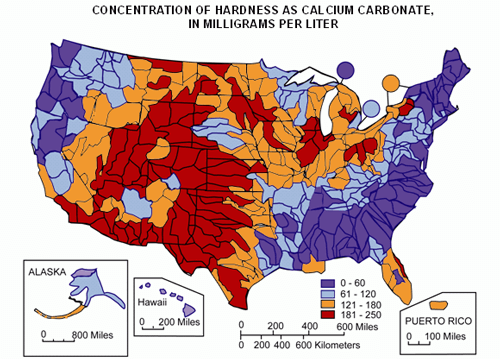

7+ Person & Commercial size Premium Water Softener (23 Litre).5–6 Person Premium Household water Softener (18 Litre).4-5 Person Premium Household Water Softener (14 Litre).2-4 Person Premium Household Water Softener (10 Litre).2-4 Person Compact Premium Household Water Softener (10 Litre).1-2 Person Compact Premium Household Water Softener (5 Litre).To make it simple we have categorised our domestic softener range into the following options depending on how many people live in the household. What Capacity options are there?Ĭhoosing the right size softener depends on a number of things. The problem with this method is that there could still be enough sodium ions left in the resin to continue softening the water but the timer has been set to regenerate early, this can waste salt and here at Aqua Cure we have opted for metered regeneration Water Softeners. Once the specified time to regenerate has come, the water softener will regenerate automatically. Timed regeneration:Īn alternative to a metered water softener system that is programmed on initial set up. The benefit of a metered water softener is that it will regenerate once the capacity usage is reached. All of our Metered water softeners are pre-set at the time of manufacture for ease of use and saves time on initial set up. Metered regeneration occurs after a pre-set amount of water has passed through the resin. Types of water softener: Metered regeneration: The process is now reset and is again ready to start the exchange process with the incoming feed water. After the maximum litre capacity has been reached (each softener is different) a salty brine solution will wash over the ion exchange resin to regenerate the Sodium ions (Na) and removes the hardness minerals such as Magnesium (Mg) and Calcium (Ca). Hard water minerals such as magnesium (Mg) and Calcium (Ca) react with the resin and exchange places with the sodium ions (Na) leaving the outgoing water with sodium ions instead of hard water causing minerals.Įach softener can soften a certain amount of water before reaching its maximum capacity and no longer has any sodium ions to exchange. Hard water passes through a cylinder inside the water softener containing ion exchange resin beads packed with sodium ions (Na).

Aqua Cure water softeners come in various sizes for domestic use to fit under a kitchen sink or cupboard and larger sizes for bigger households and commercial use. Scale is not something you want in your home for numerous reasons including blocking and damaging pipes, reducing the effectiveness or braking household appliances including the boiler.Ĭommon hard water and Limescale issues are:Ī water softener system attaches directly to the mains water supply and works by passing the water through the system, stripping the hard water particles from the water, before releasing the softened water back into the ongoing water supply. When hard water molecules are agitated (Warmed up) in kettles, dishwashers and any home appliance the hardness can precipitate as scale. Millions of people in the UK receive hard water through the mains water supply with London having particularly large areas with hard water. When hard water makes its way through the mains and into our homes for cooking, cleaning, washing and heating is when problems can arise. This rating has been developed over time to the following categories: PPM Hard water is measured in parts per million (PPM) and how many particles of hardness are dissolved in the water per million particles gives a rating.

Scotland, Ireland and Wales in the main have soft water as you can see in the water hardness map. The South East of England and london water hardness levels are predominantly high. If the water falls on non-porous rock such as granite, the water cannot penetrate the ground and therefore cannot pick up any particles or minerals and so stays soft.

If rainwater lands in an area with porous rock such as limestone, the water penetrates the ground and as it passes through collects and dissolves particles and minerals such as calcium and magnesium, gaining its hardness. Water is naturally soft when it falls from the sky and gains its hardness after coming in to contact with the ground. Hard water has a high number of dissolved minerals, predominantly magnesium and calcium.


 0 kommentar(er)
0 kommentar(er)
